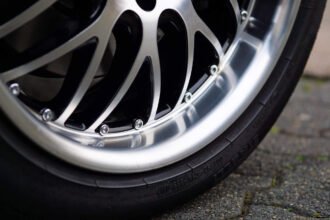Often known to make an appearance between the ages of seventeen and twenty-six, do wisdom teeth really have something to do with being wise? Not really. Their name is derived from the age at which they appear i.e. late teens or early adulthood and a casual association with becoming wiser.
What Exactly are Wisdom Teeth?
Wisdom teeth are a third pair of molars that most people develop between adolescence and adulthood. However, the need for wisdom teeth declined with evolution. Back in the day wisdom teeth were an integral part of human anatomy significant to the function of chewing when there were fewer tools and cutlery. However, with time, they became redundant to human anatomy and wisdom tooth removal became necessary in most people.
Does Everyone Have Wisdom Teeth?
Well, not everyone develops wisdom teeth. Some people may never actually end up developing them which is perfectly fine. There are others who might develop wisdom teeth and will never actually develop any oral problems or pain.
There are wisdom teeth that develop normally without any problem like regular teeth. However, often times due to crowding and limited space, wisdom teeth start growing irregularly at an angle and are known as impacted wisdom teeth.
Wisdom Tooth Removal – Yes or No?
Since wisdom teeth no longer serve any function in the present day human body, very often, when they are present and create problems, wisdom tooth removal might be the best solution. There is often a lack of enough space to accommodate wisdom teeth, causing problems with alignment. Without adequate space, these teeth can either grow crooked, partially or even get trapped in the gums causing infections.
They may cause pressure on the roots of the other molars or weigh down the teeth surrounding them. The build-up of plaque in these sites can also cause dental caries, periodontal disease, cellulitis, abscess, or even cysts. Sometimes it may lead to swollen or tender gums, bad breath, an unpleasant taste in the mouth near the affected area, swollen lymph nodes, and occasionally even a headache or jaw ache.
Because wisdom teeth are positioned so far back, it is difficult to clean or fill any plaque build-up or cavities. An impacted wisdom tooth as such becomes a common site for infection, irritation, swelling, and pain. Due to the lack of alignment, at times, deformity or infections in a wisdom tooth is structural and impacted wisdom tooth removal is not only necessary but is often indispensable.
Is the Removal of Impacted Wisdom Tooth Safe?
While healthy and aligned wisdom teeth are just as good as your regular teeth, if your wisdom tooth is giving you trouble, it is important that you make an appointment with the dentist immediately. A preliminary investigation would involve an inquiry about routine dental hygiene, symptoms caused by the impacted wisdom tooth, and X-rays to understand the damage to adjoining teeth or the jawbone.
Some impacted wisdom teeth may be treated with antibiotics or oral antiseptic rinses. If however, your impacted wisdom tooth does not respond to these treatments, then you may be advised to get your wisdom tooth removed. Dentists follow certain guidelines to determine if the removal of your wisdom tooth is necessary or not.
Once a specialist has advised the removal of your wisdom tooth it is extremely important that you go ahead with it to relieve the symptoms and to prevent complications – such as an infection from the teeth or gums spreading to the rest of the body.
When Should You Go Ahead with Impacted Wisdom Tooth Removal?
There is no suitable age or time for impacted wisdom tooth removal. You could be as old as 40 years of age and still go ahead with the procedure if it is recommended to you. However, since the bone is more flexible before 30 years of age, you would be able to heal more quickly from the procedure or surgery.
What Does Impacted Wisdom Tooth Removal Entail?
The impacted wisdom tooth removal procedure is pretty much the same as that of any other tooth. The dentist or dental surgeon may advise some preparation and would perform the procedure in his office or clinic. He or she may perform a local or general anesthesia which would make the experience painless for you.
A certain number of precautions may be taken before the surgery. Especially if one has ulcers or bleeding gums they may be advised to wait for it to resolve until the procedure. Also, if the wisdom tooth or the gums around it are already infected the doctor may prescribe antibiotics for a few days before proceeding with wisdom tooth removal.
In some cases, stitches may be necessary for the part of the gums that have been worked upon. The dental surgeon may make an incision to extract either the impacted wisdom tooth in entirety or smaller pieces depending on the size of the wisdom tooth. Following wisdom tooth removal, the incision will be stitched back together and the empty socket will be suitably packed.
Recovery
Following the procedure of wisdom tooth removal, it is normal to have some bleeding and swelling. The empty tooth socket needs to be protected from any kind of food particles that might lead to an infection. Certain preventative measures will be advised by your dentist following the procedure to prevent complications.
A diet of soft foods like porridges and pudding would put less pressure on the jaw and avert unnecessary pain from chewing and swallowing. Keeping away from any strenuous activity will also help with minimising bleeding. A common side effect is the formation of a dry socket.
This refers to either a dull ache in the jaw or tooth in the socket or a bad smell or taste coming from the empty tooth socket. This side effect can be avoided with appropriate care and keeping away from unhealthy habits like smoking.
Smoking not only increases the likelihood of dry sockets but also leads to delayed healing. Avoiding smoking and taking necessary precautions are extremely important for a speedy recovery. The sockets take anywhere between 2-4 weeks to fill up with gum tissue.
Takeaway
While wisdom tooth removal may seem daunting and unnecessary, it is both simple and in some cases indispensable. Avoiding or delaying it might actually cause complications and harm. If you are suffering from the discomfort of an impacted wisdom tooth, you should seek expert advice at the earliest. It would be a wise thing to do after all.








